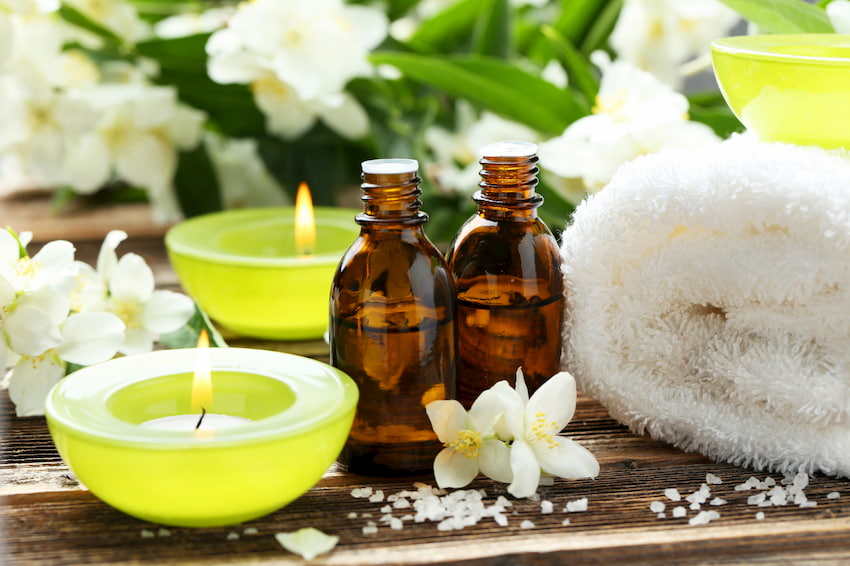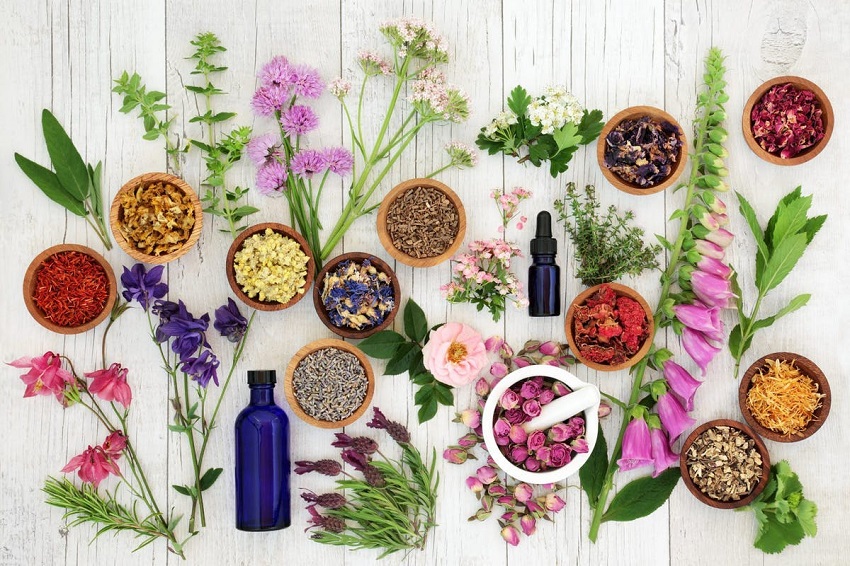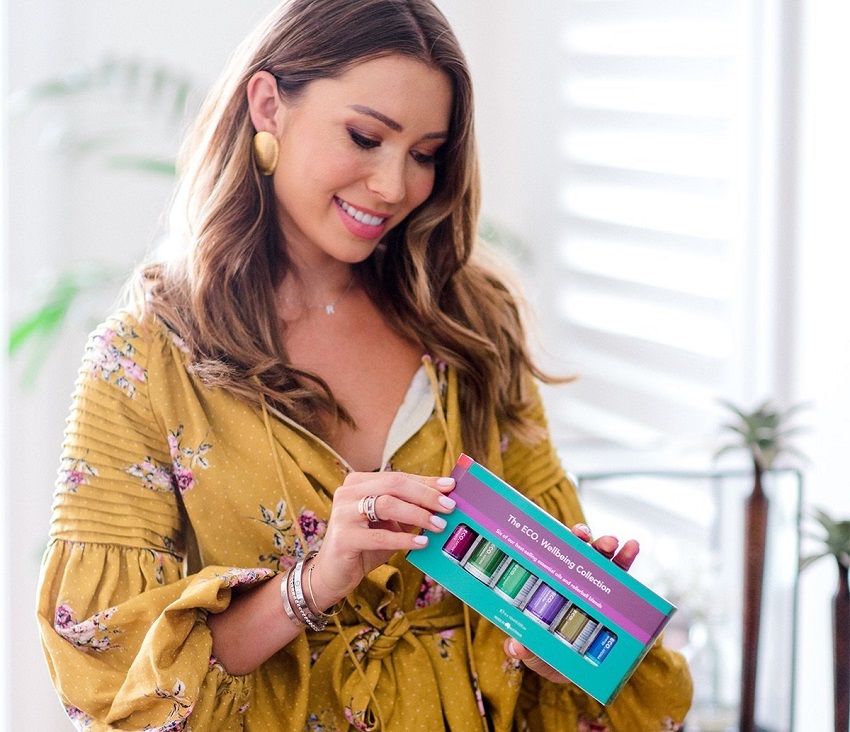
Explaining Aromatherapy – Uses & Benefits
Aromatherapy is a holistic healing treatment that uses natural essential oils to promote well-being and health. It is also known as essential oil therapy. It involves the use of natural plant extracts to improve the health of the body, spirit and mind. Aromatherapy is considered both science and art, but today it has gained more recognition in the fields of medicine and science.
People have been using aromatherapy for thousands of years now. Ancient cultures have started incorporating aromatic plant components in balms, oils and resins. The natural substances were used for religious and medical purposes and were known to offer a range of psychological and physical benefits. The distillation of essential oils started in the 10th century. In the 19th century, French physicians recognized the potential of the aromatherapy essential oils in treating diseases.

Source: Stylist.co.uk
Contents
How does aromatherapy work?
Aromatherapy works through skin absorption and sense of smell. The process is helped with the use of products like diffusers, inhalers, aromatic spritzers, bathing salts, body lotions, creams and oils for topical application and massage, inhalers, hot and cold compresses, facial steamers and clay mask. You can use them alone or in combination.
When it comes to aromatherapy essential oils are in its core. These goodies can be found in a diverse range of smells, all offering different benefits for your well-being. The most popular ones are lavender, eucalyptus, lemon, neroli, peppermint, Roman chamomile, rosemary, ylang-ylang, rose and others. You can easily find aromatherapy oils online, in supermarkets and health food stores. However, when looking to buy aromatherapy oils, it’s important to shop from a reputable producer since not all oils on the market are safe. Look for quality and 100% natural goodies that don’t contain any synthetic ingredients or additives. Pure oils have an array of healing properties and effects.
How to use essential oils for aromatherapy?
The most common way is to inhale them using a humidifier, a diffuser or directly out of the bottle. Also, you can be more creative and use them along with your body wash or bath. You can enrich your facial toner, conditioner or shampoo with essential oils or you can also incorporate them into your toothpaste, liquid soap or mouthwash.
Can aromatherapy essential oils be used on the skin?
Yes, another way to use these powerful liquids is to apply them on your skin. There is a variety of techniques for safe application of essential oils on your skin, so if you decide to use them this way you should be very careful. Pure essential oils cannot be applied directly to the skin without first being diluted with a carrier oil. Also, not all oils can be used topically.
Are aromatherapy oils and essential oils the same?
Not really. Usually, aromatherapy oils are a 2% dilution of essential oils. On the other hand, essential oils are undiluted products that have been extracted from leaves, herbs, flowers, fruits, gum, spices, woods, grasses and barks.

Source: Ecomodernessentials.com
Benefits of aromatherapy
This therapy offers a range of health benefits including managing pain, improving sleep, reducing stress, anxiety and agitation, soothing sore joints, treating migraines and headaches, alleviating side effects of chemotherapy, fighting fungus, virus and bacteria, easing discomforts of labour, improving digestion, boosting immunity, etc.
Conditions that can be treated with aromatherapy
Aromatherapy is known for having the potential to treat certain health conditions like asthma, insomnia, fatigue, depression, inflammation, peripheral neuropathy, menstrual issues, alopecia, cancer, erectile dysfunction, arthritis and menopause.
Side effects
Most essential oils are safe to use, but still, there are some precautions you should take and some side effects you should be aware of. This is especially important if you are taking some kind of prescription medications and already treating some health conditions. Not all oils are safe to be used directly on the skin. Always dilute the oils with a carrier oil and in case you want to use one on the skin then remember to do a skin patch test first. Citrus essential oils make the skin more sensitive to the sun so you should avoid them if you plan on being exposed to sun’s harmful UV rays for a prolonged period of time.
Pregnant, breastfeeding women and children should use essential oils only under the supervision of a doctor. Side effects of these oils include rashes, asthma attacks, headaches, allergic reaction, skin irritation, nausea, etc.


No Comments